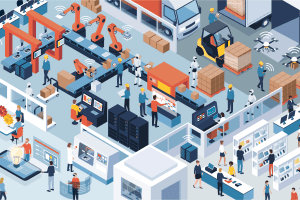Artificial Intelligence: Are we heading towards an AI winter?

It’s impossible to argue the fact that AI has come on leaps and bounds in the last decade. IBM’s Watson won Jeopardy! in 2011, AlphaGo defeated Lee Sedol in 2016 and Google’s self-driving Waymo launched in 2018. Whatever your thoughts are on AI – strong or weak, true or false, genuine innovation or marketing ploy – it has progressed significantly, and in some cases, the AI designation for some innovations has been warranted.
However, for the most part, the term AI has been liberally attached to simple technologies in order to sell things. It says AI on the packet, it must be intelligent. Take AI toothbrushes, for example, probably nothing more than a label attached as part of a marketing strategy devised in order to stay relevant in an industry moving at break-neck speed. At this rate, weak artificial intelligence casts a huge shadow over true AI.
“Nearly all of what we call AI is weak AI in today’s state of tech,” says Ian Rowan, machine learning expert and founder of Nurio. “This will begin to lead many people to look down on the state of AI in the very near future.”
Is AI innovation slowing, or are we just now becoming familiar with the term? Is its association with the mundane diminishing strong AI?

Peter van der Putten, an assistant professor in AI at Leiden University, says: “You do need to separate that heady brew of hype, perception and expectations from the underlying developments and scale of the application of AI, which is growing steadily. When technologies are applied more and more they become more ‘normal’ and some of the hype disappears.”
It’s a sentiment echoed by Ian Rowan, too. Innovation has slowed, he says, and we’re now stuck in a loop which we must navigate out of in order to reach the next level.
“As more people become familiar with the term and the concepts of AI, the realization of what it actually leads to increased overall disillusionment and the appearance that innovation has slowed.”
Ian Rowan, CEO & Founder of Nurio
Like most things, this hype surrounding AI has come in peaks and troughs. Experts have branded the good times as AI summers and the bad times as AI winters. Some believe we are transitioning into an AI winter now; a cooling-off period after the white-hot 2010s, a decade which saw billions invested into AI. Others believe that this is not actually an AI winter after all, but a shift in the zeitgeist.
“What I see on the horizon for AI is not the same type of winter that occurred in the 1970s+, but rather a trough of disillusionment on the hype cycle,” Rowan says. “The reason I do not see this as a true AI winter is that the previous AI winter was caused by a lack of compute power and data, while the groundbreaking algorithms did exist but were stuck more or less. We no longer have those barriers and are able to implement nearly any algorithm we can imagine.”
With that being the case, perhaps the only thing standing in the way is ourselves and society as a whole. Are we expecting too much of these new developments, leading to this period of disillusionment? And where do we go from here?
READ MORE: Nurio – The product that controls IoT devices with thought control
Rowan says that progress must continue. The next logical step to pull us out of this trough is to develop algorithms that work like the human brain, which can “model the filtering and contextual understanding that human intelligence has. When this inflection point is hit, new methods that are radically different will need to be developed and will lead to the next step in AI’s innovation cycle.
Rowan believes that by the mid-2020s, this period of disillusionment will have taken its course, and that we will begin to pull away from it, revealing a more stable innovation process, allowing for radically new methods away from deep learning to form.
“I project that these methods will center around Quantum Mechanical and computing systems,” he says, “because the concepts of Quantum Computing allow for the very probabilistic nature of AI and decisions to be modelled in ways never before possible.
“If we are looking to invest so much time into AI shouldn’t our target be something that is better than our own brains that exists as a tool completely in our control?”
Ian Rowan is a machine learning engineer and the founder & CEO of Nurio.
Peter van der Putten is an assistant professor in AI at Leiden University, and director of decisioning at Pegasystems.
